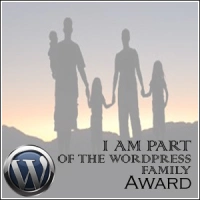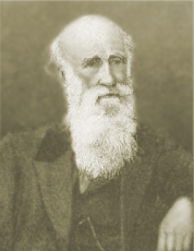In Feestdagen, consumeren en besparen and Is it wise to annul the Pentecostweekend I mentioned the ideas of some members of parliament to get rid of certain holidays to boost the economy.
The most commercial successful Pentecost weekend has Whit Monday to be taken off.
One day a lot of people would not bother so much is according to me also very important to keep in mind as a special day to treasure, not so much for the nice things but as a warning sign for future generations. It is the the 315th day of the year (316th day in a leap year) according the Gregorian calendar.
You could call it a sign of the Coming of age of the people in the community having to know what they should do and what the consequences of their actions could be. It should be a day of reflection, remembering the many people who gave up their life for something which has perhaps gone already or is long forgotten. Some did not want to be involved, others volunteered but soon got to know that they had chosen wrongly. In previous years many were sent into their death.

Peace consideration of Carnuntum
11 November 308 the conference between Emperor emeritus Diocletian or Diocletianus, his co-emperors Maximian or Maximianus and Galerius took place in Carnuntum by the Donau to solve the rising tensions within the tetrarchy. Emperor Constantius II had it built there a huge triumphal monument to commemorate his victories. (Later called the ‘pagan gate’)
Council of the Lateran and the Crusades
November 11, 1215 the Fourth Council of the Lateran or the 12th ecumenical council, began gathering at Rome’s Lateran Palace . Innocent III wanted there to reformulate papal involvement in the Crusades as outlined in his decree “To Free the Holy Land” plus the organization of the Fifth Crusade in which once more many people could been killed in the name of God. (Which is an abomination for God and is going against two Laws of God, namely not to misuse His Holy Name, and not to kill anybody.)
The Ottoman Empire and hegemony of the Habsburg dynasty
Commonwealth weakness had led to the signing of the Peace of Buczacz but caused the Battle of Khotyn on 11 November 1673. The Polish–Ottoman War (1672–76) or Second Polish–Ottoman War was a war between the Polish-Lithuanian Commonwealth and the Ottoman Empire showed the increasing weakness and disorder of the Commonwealth, who by the second half of the 17th century had started its gradual decline that would culminate a century later with the partitions of Poland. The victory of the Battle of Khotyn allowed the Poles to revoke the unfavourable Peace of Buczacz and set the stage for the role Sobieski was to play in the Battle of Vienna in 1683, after Vienna had been besieged by the Ottoman Empire for two months. It marked the beginning of the political hegemony of the Habsburg dynasty in the Holy Roman Empire and Central Europe.

Battle above the ground: Battle of Khotyn 1673
On 11 November 1805 we can find in Dürenstein, a combined force of Russian and Austrian troops trapped a French division commanded by Théodore Maxime Gazan. For Belgians these series of conflicts from 1803 to 1815 known as the Napoleonic Wars were very important and got their culmination at the Battle of Waterloo was fought on Sunday, 18 June 1815 near Waterloo in present-day Belgium.
Battleground for Europe
The Low Countries have been, from the 16th until the 19th century the battleground for Europe.

Battle of the Golden Spurs or Guldensporenslag
For the Flemish people the Battle of Waterloo was after the Battle of the Golden Spurs (Dutch: Guldensporenslag or Guldensporenkrijg, French: Bataille des éperons d’or) of July 11, 1302, near Kortrijk (Courtrai) in the County of Flanders, the most important liberation battle. For the people living in the region now part of Belgium and the North of France the battle of Waterloo, about 8 miles or 12 kilometers SSE of Brussels, did put an end to the tyrant rule of Napoleon as the emperor of France. It had also marked the end of the hundred days of Napoleon from exile return. The battle was regarded as an influential battle of all time marking the Bonaparte’s last and Waterloo Campaign.
After the defeat of Napoleon by Waterloo in 1815, the country went on in the United Kingdom of the Netherlands, a larger buffer state against the restless and revolutionary France.

The British guards defending Hougoumont near Waterloo
Waterloo decisively saw the end of 26 years of fighting between the European powers and France. The French star was eclipsed and the German began its ascendancy.
Expansion and industrial war
In the New World between 1803 and 1854, a vast expansion of US territory was achieved through purchase, negotiation and conquest and this caused some agitation. With the outlawing and criminalization of the Atlantic slave trade in 1808 and 1820, the only constitutionally feasible strategy available to freesoilers to attack slavery was to restrict its introduction into the territories. A policy of “containment” – limiting slavery to where it already existed – would set the institution on a trajectory towards “ultimate extinction” {American Civil War, Bestor, 1964, p. 15} For the first time we can speak of an early true industrial war. Railroads, telegraph, steamships, and mass-produced weapons were employed extensively to produce a total war not in terms of killing civilians but rather in terms of destroying homes, farms, and railroads. The practices of total war, developed by Sherman in Georgia, and of trench warfare around Petersburg foreshadowed World War I in Europe. 11 November 1864 sees in the American Civil War: Sherman’s March to the Sea – Union General William Tecumseh Sherman begins burning Atlanta, Georgia to the ground in preparation for his march south. On 11 November 1889 the State of Washington is admitted as the 42nd State of the United States.
During the Franco-Prussian War of 1870-1871, Prussia defeated the Second French Empire, resulting in the establishment of the Third Republic. In the Treaty of Frankfurt, Prussia forced France to cede Alsace-Lorraine to the new German Empire.
+
To be continued: 11 November, a day to remember #2 From the Industrialisation +
1914 – 2014 preparations + Parade’s End and Saint Flora Castle
Recommended: The marvellous site of Michael Duffy: First World War com
Please do find:
In Dutch:
+++
Related articles
- A Istanbul. Ottoman – Dutch Relations in their 400th Year (istanbulavrupa.wordpress.com)
- Is it wise to annul the Pentecostweekend (marcusampe.wordpress.com)
- Scramble for the Past. A Story of Archaeology in the Ottoman Empire, 1753-1914 (istanbulavrupa.wordpress.com)
- Against Massacre. Humanitarian Interventions in the Ottoman Empire, 1815-1914 (istanbulavrupa.wordpress.com)
Against Massacre looks at the rise of humanitarian intervention in the nineteenth century, from the fall of Napoleon to the First World War. Examining the concept from a historical perspective, Davide Rodogno explores the understudied cases of European interventions and noninterventions in the Ottoman Empire and brings a new view to this international practice for the contemporary era. - What Are Christians Fighting For? (raymondjclements.wordpress.com)
where should Christians stand when it comes to war?To provide some degree of answer to this I’m going to look at:- The nature of the new covenant, and what it means to be a citizen of God’s kingdom
- The pattern of the early church
- The change that occurred from the time of the Roman Emperor Constantine
- Some aspects of the situation today
- Newsweek asks: How ignorant are you?
- Turkey vs. Israël
- CFP – Balkan worlds: Ottoman past and Balkan nationalism (tristanlandry.com)
- Review of Cross and Crescent in the Balkans: The Ottoman Conquest of South-Eastern Europe (14th-15th Centuries) (militaryhistoryblog.wordpress.com)
The main thrust of this study that will interest military historians is on the Ottoman conquest of Southeast Europe. By the fourteenth century the Byzantine Empire was weak militarily. The Byzantines needed the alliance of the Ottoman Turks in the struggle against Christian Balkan states. - A Istanbul. The History of Archaeology from the Ottoman Empire to the Republic (istanbulavrupa.wordpress.com)
A Story of Archaeology in the Ottoman Empire, 1753-1914″ exhibition, the conference aims to reach beyond the exhibition and its publication’s time frame to include the Republican Era. - The Ottoman Crimean War, 1853-1856 (istanbulavrupa.wordpress.com)
The Crimean War was a defining event in both European and Ottoman history, but it has principally been studied from the Europeans’ point of view. This study analyzes the role of the Ottoman Empire in the Crimean War and the War’s impact on the Ottoman state and Ottoman society.






























 Biblestudents – Bijbelstudenten
Biblestudents – Bijbelstudenten 0 + Bloggers for Peace
0 + Bloggers for Peace Free Christadelphian Ecclesia
Free Christadelphian Ecclesia Hoop tot Leven – Redding in Christus
Hoop tot Leven – Redding in Christus Vrije Broeders in Christus (Free Flemish Christadelphians on Wordpress)
Vrije Broeders in Christus (Free Flemish Christadelphians on Wordpress)















Pingback: 11 November, a day to remember #2 From the Industrialisation | Marcus' s Space
Pingback: 1914 – 2014 preparations | Marcus' s Space
Pingback: Parade’s End and Saint Flora Castle | Marcus' s Space
Pingback: A day without taking the symbols « Christadelphians : Belgian Ecclesia Brussel – Leuven
Pingback: Belgian Biblestudents - Belgische Bijbelstudenten
Pingback: Slavernij, Ongedesemd Brood en Feesten | Belgian Biblestudents - Belgische Bijbelstudenten
Pingback: Holidays, holy days and traditions | Stepping Toes
Pingback: August 4, 1914 to be remembered | Marcus' s Space
Pingback: Liège 2014 remembering the Great War | Marcus' s Space
Pingback: Mons 2014 remembering the Great War | Marcus' s Space
Pingback: Reflections on the Great War #1 | From guestwriters
Pingback: Reflections on the Great War #2 | From guestwriters
Pingback: The Somme (1916) Working Class Holocaust | From guestwriters
Pingback: July 4, 1916 – Battle of the Somme greeted with ‘the greatest enthusiasm’ | From guestwriters
Pingback: The Great War changed everything | Marcus Ampe's Space
Pingback: The War to end all wars | From guestwriters
Pingback: Why are we killing? | From guestwriters
Pingback: Anatomy of a World War I Artillery Barrage | Marcus Ampe's Space
Pingback: Centenary of Armistice Day – Belgian Ecclesia Brussel – Leuven